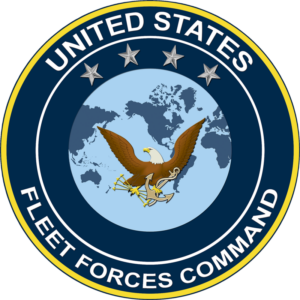The Secretary of the Navy on Wednesday announced U.S. Fleet Forces Command is being renamed U.S. Atlantic Fleet, in part, to focus on countering Russia.
Testifying before the Senate Armed Services Readiness and Management Support subcommittee, Secretary of the Navy Kenneth Braithwaite argued this is part of how the service must continually adjust to threats changing over time.

“Our existing fleet structure operates on the premise that we still live in a post-9/11 state where NATO’s flanks are secure, the Russian fleet is tied to the pier and terrorism is our biggest problem. That is not the world of today. And so as the world changes, we must be bold, evolved, and change with it. Instead of perpetuating a structured design to support yesterday’s Joint Forces Command, we are aligning to today’s threat,” Braithwaite said.
“To meet the unique maritime challenges of the Atlantic theater, we will rename Fleet Forces Command as the U.S. Atlantic Fleet and we will refocus our naval forces in this important region on their original mission: controlling the maritime approaches to the United States and to those of our allies,” he continued.
The Secretary said the Atlantic Fleet will focus on confronting the reasserted Russian Navy, “which has been deploying closer and closer to our East Coast with a tailored maritime presence, capability, and lethality.”
According to the U.S. Fleet Forces command history webpage, the original U.S. Atlantic Fleet existed in various forms until 2006 when it was renamed U.S. Fleet Forces Command.
The Commander, Fleet Forces Command title was previously added to the Atlantic Fleet after the September 11 attacks in 2001 “to improve alignment and organization structure to ensure the Navy’s fleets, staffs, systems and processes delivered a combat capable Navy ready to respond to all contingencies. “
When Atlantic Fleet became Fleet Forces Command it incorporated the Commander, Fleet Forces Command responsibilities and added a mission to serve as the “primary advocate for fleet personnel, training, requirements, maintenance and operations issues, and reporting administratively to the CNO as an echelon 2 command.”
Braithwaite also reiterated plans to reconstitute the U.S. 1st Fleet to focus on the Indian and Pacific Ocean crossroads region.
“In order to improve our posture in the Indo-Pacific, we will reconstitute the 1st Fleet, assigning it primary responsibility for the Indo and South Asian region as an expeditionary fleet, back to the capabilities and unpredictability of an agile, mobile, at-sea command.”
Braithwaite first unveiled the plan for 1st Fleet last month while speaking at the annual Naval Submarine League symposium. At the time, the secretary said he had not yet discussed the proposal with new Acting Secretary of Defense Christopher Miller but that he has “crossed all the other T’s and dotted all the other I’s” (Defense Daily, Nov. 17).
Ranking member Sen. Tim Kaine (D-Va.) asked if the 1st Fleet change means taking “the sizeable real estate that is now covered by the 7th Fleet out of Japan and divide it into two fleets because of increased activity at the seam between the Pacific and Indian Oceans?”
Braithwaite confirmed that is “exactly right” and confirmed at least at the start it will be an expeditionary fleet without a land-based headquarters.
Upon further questioning by Kaine, the secretary said the change from Fleet Forces Command to U.S. Atlantic Fleet will not change the employment situation in Virginia.
“No, senator. There is no loss of jobs. There is no loss of revenue to the Tidewater region [of Virginia],” Braithwaite said.
Braithwaite also confirmed the Pacific Fleet will have the 1st, 3rd and 7th Fleet reporting through it while 5th Fleet will still report through U.S. Central Command.
Meanwhile, Braithwaite said Atlantic Fleet will have the 2nd and 4th Fleets report through it while 6th Fleet will be reporting to U.S. Forces Europe.
Kaine asked if the 6th Fleet decision is because “that fleet does so much in tandem with NATO allies in the theater?” and Braithwaite agreed.